Paul Weller tends to be more misunderstood than most. It’s deeply ironic that the man responsible for some of the most innovative music of the past 40 years is so often reduced to the lazy epithet of The Modfather.
His career has spanned punk, R&B, psychedelia, folk-soul, jazz, electronica and avant-rock, a spectrum that runs from brutish noise to semi-orchestral repose. “I never, ever wanted to be the Rolling Stones,” Weller once said. “Bless their hearts, but I don’t necessarily want to go on doing the same old thing.”
This bullish determination to keep challenging himself has been the defining thread in Weller’s career. His earliest obsessions – the Small Faces, The Kinks, The Who – were filtered into the brusque economy of The Jam. Between 1977 and ’82 the Woking trio of singer-guitarist Weller, bassist Bruce Foxton and drummer Rick Buckler created a string of killer albums and irresistible singles that earned them a fiercely loyal fan base and major chart success. Weller swiftly emerged as an uncommon songwriter, capable of articulating the blunt frustrations of working-class suburbia in a way that hadn’t been heard since Ray Davies.
The Jam could have gone on, but it was typical of Weller, eager to pursue other options, that he dissolved the band at their commercial peak. He was still only 24 when they signed off with The Gift in 1982.
His next project, one that consumed him for the rest of the 80s, was the Style Council. To preserve the integrity of Classic Rock it’s perhaps best that we skip that chapter of Weller’s creative journey. Suffice to say that it involved jazz-lite soul and ill-advised deck shoes.
He returned to the fray with an understated solo debut in 1992. But the following year’s Wild Wood, a gorgeous set of psychedelic folk-tinged songs that betrayed a love of Traffic and early Neil Young, revived his career. By 1995’s Stanley Road, Weller had become the elder statesman of Britpop. He continued to release albums at a steady rate, never failing to make the top five.
The early new millennium brought an artistic dip, although Weller recovered in fine style. The run of albums from 2008’s 22 Dreams to his new studio record, Saturn’s Pattern, represents the most consistently ambitious music of his life. “You can’t stick in your little comfort zone,” Weller explained.
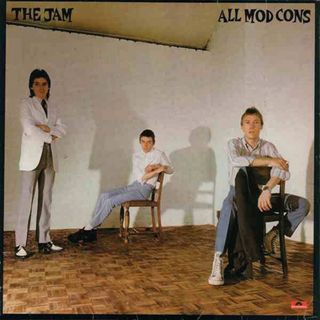
ESSENTIAL The Jam All Mod Cons Polydor, 1978
Weller has often been at his sharpest when faced with adversity. Seemingly on the slide after their poorly received second album The Modern World, The Jam responded with All Mod Cons, a bilious volley of pop-punk full of acute, character-driven observations of humdrum British life in the 70s. The spectre of Ray Davies is apparent in the tart social critique of Mr Clean and Billy Hunt, never mind the great cover of David Watts. Down In The Tube Station At Midnight is a tale of thuggery, but Weller could also write with a hitherto unseen delicacy; English Rose stands as one of the most arresting love songs of its era.
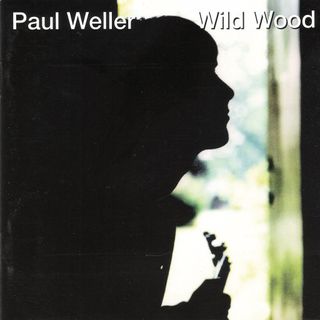
ESSENTIAL Paul Weller Wild Wood Go! Discs, 1993
After the previous year’s low-key debut, the Mercury Prize-nominated Wild Wood heralded Weller’s arrival as a truly forceful solo artist. The overriding tone is pastoral, echoing the autumnal British folk of Nick Drake and the trippy grooves of mid-period Traffic. This reflective, almost holistic mood is perfectly expressed in the mellow warmth of the title track and the wistful epic Shadow Of The Sun, with rasping solo and guest vocals from his then-wife Dee C Lee. Weller hadn’t lost his edge, either. Has My Fire Really Gone Out? and Can You Heal Us (Holy Man) both bristle in a manner not heard since The Jam.
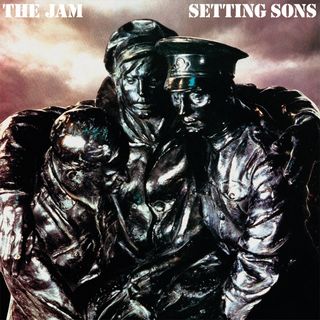
SUPERIOR The Jam Setting Sons Polydor, 1979
Initially devised as a concept LP about childhood friends who reunite after a war, only to find themselves no longer compatible, Setting Sons turned out to be less thematic. Elements of Weller’s original vision remain (Little Boy Soldiers, Burning Sky, Wasteland, the cover photo of a bronze cast from the Imperial War Museum), but the album instead serves as a sly treatise on class and workaday life. The Eton Rifles is viciously poignant, while Bruce Foxton offers up his finest moment with Smithers-Jones. Bursting with melody and invention, it’s a punky postscript to The Kinks’ Arthur.
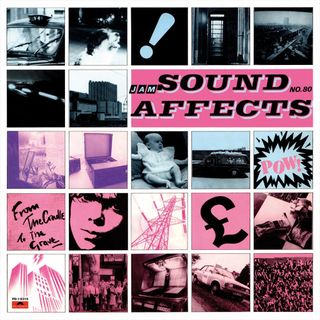
SUPERIOR The Jam Sound Affects Polydor, 1980
Supposedly Weller’s favourite, Sound Affects is a potent distillation of everything he adored about British music. The Beatles are given the most explicit nod on Start!, a No.1 single that lifts the riff of Taxman. On consumerist attack Pretty Green, Weller channels Gang Of Four with a dash of modern psychedelia. Foxton and Buckler are sinuous, while Weller’s stroppy riffs are punctuated by clever hooks and, on Boy About Town and Dream Time, a little brass. The greatest track is That’s Entertainment, a strum-along over a litany of bugbears about suburbia.
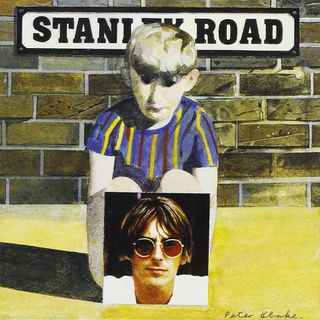
SUPERIOR Paul Weller Stanley Road Go! Discs, 1995
Weller’s third album is an exemplar of 90s Britpop, from its ringing guitar chords and retro grooves to Peter Blake’s classic sleeve art. Not to mention Noel Gallagher on the cover of Dr John’s I Walk On Gilded Splinters.
Named after the Woking address where Weller grew up, Stanley Road is a mix of the reflective and acerbic. The Changingman (one of two UK Top 10 hits, with You Do Something To Me) borrows a lick from ELO’s 10538 Overture, before fanning out into a bluff rocker. The nostalgia is heightened by Steve Winwood’s piano turn on Woodcutter’s Son and Pink On White Walls.

SUPERIOR Paul Weller 22 Dreams Island, 2008
An emphatic response to all those tired Modfather clichés, 22 Dreams is as dazzling as it is wildly eclectic. Folk, soul and psychedelia are accompanied by electronica, jazz rock and a fresh sense of experimentation that even finds room for cowbells, hornpipes and spoken-word poetry. The beauty of it all is that it hangs together so persuasively. Then there are guests Robert Wyatt (trumpet and piano on Alice Coltrane homage Song For Alice), Blur’s Graham Coxon (Black River), ex-Jam bandmate Steve Brookes (One Bright Star) and, on the trippy Echoes Around The Sun, old pal Noel Gallagher.
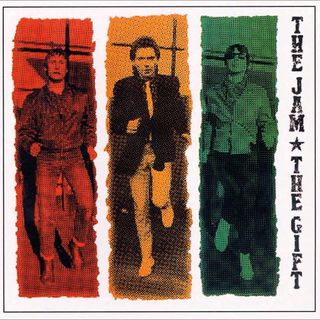
GOOD The Jam The Gift Polydor, 1982
“I want us to finish with dignity,” Weller told fans before The Jam split in 1982. As a parting statement, The Gift pretty much makes good on that promise, although its emphasis on Staxy funk and northern soul tended to polarise the diehards who’d grown up listening to the three-chord savagery of In The City. The furious groove of Precious and the less successful Trans-Global Express (its hook nicked from World Column’s club fave, So Is The Sun) are cases in point. That said, you can’t argue with the restrained beauty of Ghosts or the thumping Town Called Malice, a sharp retort on working-class life in Woking and their third UK No.1.
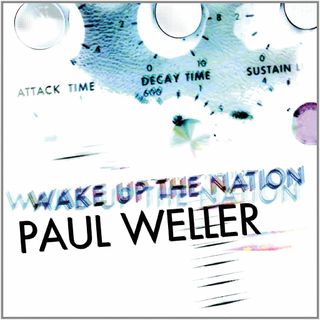
GOOD Paul Weller Wake Up The Nation Island, 2010

GOOD Paul Weller Sonik Kicks Island, 2012
Weller’s burgeoning interest in free-form music is a key feature on Sonik Kicks, from the Neu!-inspired Kling I Klang to the electronic collage of Green. Which is not to say he’d suddenly gone all avant-garde. The likes of Dragonfly and Drifters sound like fizzy refractions of Berlin-era Bowie, while That Dangerous Age, a funky study of a man struggling with the passing of youth, refutes any notions of Weller as a man without humour. And if it’s classic craftsmanship you’re after, best head to the more tranquil, string-laden By the Waters. It revels in the idea of sound as stimulant, dizzy with discovery and with a kaleidoscopic sense of purpose.
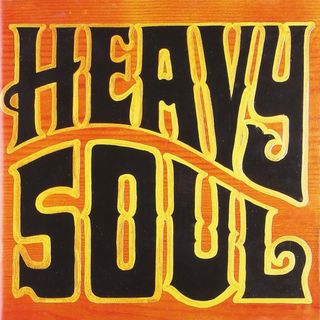
AVOID Paul Weller Heavy Soul Island, 1997
Leaving the Style Council to one side, Weller has made other questionable turns throughout his career. Studio 150, 2004’s all-covers set, is patchy at best. Heliocentric and Illumination, from the early noughties albums, also have their detractors.
But arguably his lowest moment is Heavy Soul, the follow-up to the much-loved Stanley Road. In its defence, there’s nothing truly awful on it. But neither is there anything genuinely inspiring, just a tired-sounding retread of Weller tropes. Perhaps most damning of all, Heavy Soul saddled him with a reputation as the leading exponent of lumpy dad-rock.
ESSENTIAL PLAYLIST
The Jam – All Around The World (single only)
The Jam – Strange Town (single only)
The Jam – Down In The Tube Station At Midnight (All Mod Cons)
The Jam – The Eton Rifles (Setting Sons)
The Jam – Going Underground (single only)
The Jam – That’s Entertainment (Sound Affects)
The Jam – Funeral Pyre (single only)
The Jam – Town Called Malice (The Gift)
Paul Weller – Wild Wood (Wild Wood)
Paul Weller – Has My Fire Really Gone Out? (Wild Wood)
Paul Weller – You Do Something To Me (Stanley Road)
Paul Weller – The Changingman (Stanley Road)
Paul Weller – From The Floorboards Up (As Is Now)
Paul Weller – Light Nights (22 Dreams)
Paul Weller – Trees (Wake Up The Nation)
Paul Weller – Green (Sonik Kicks)


